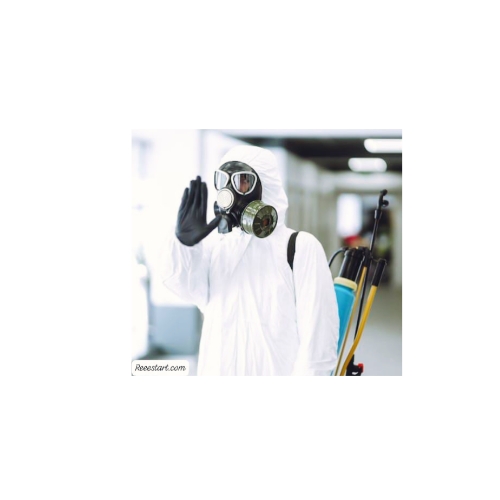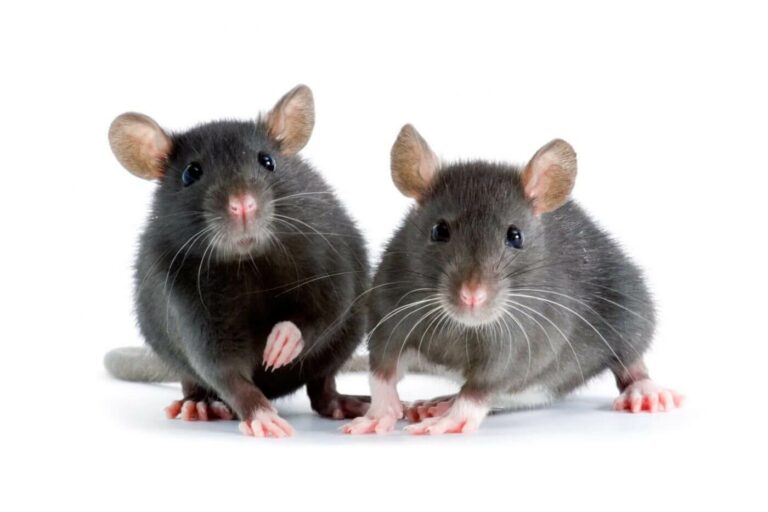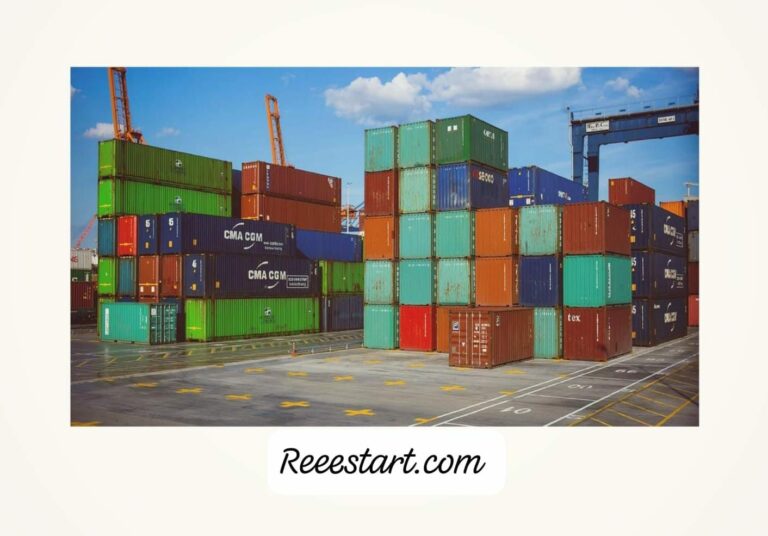Expected Pest Control Engineer interviews assess a candidate’s technical knowledge, practical skills, and commitment to safety and Integrated Pest Management (IPM), The United Arab Emirates (UAE) is one of the top destinations for work and living in the Middle East. With its advanced infrastructure, thriving economy, and high standard of living, Dubai has become an ideal location for professionals across various fields, including pest control. Working in Dubai provides an excellent opportunity for professional growth and personal lifestyle enhancement, as the country focuses on offering a safe and prosperous work environment, complete with various benefits such as excellent healthcare, attractive salaries, and a multicultural community.
Expected Pest Control Engineer Interviews
Success in an Pest Control Engineer interview hinges on demonstrating a strong understanding of Integrated Pest Management (IPM) principles, showcasing practical experience with various pest control techniques, and highlighting a commitment to safety and customer satisfaction. Candidates should be prepared to discuss their knowledge of common pests, their ability to identify signs of infestation, and their experience with both chemical and non-chemical control methods. A thorough understanding of pesticide safety protocols, including proper handling, application, and storage, is crucial.
Additionally, Dubai offers an ideal working environment for public health pest control engineers due to the unique challenges the city faces, such as rapid climate changes, dense urbanization, and high population density. By working here, you’ll have the opportunity to address complex issues and deliver innovative solutions to health and environmental problems, with a strong emphasis on sustainability in pest control operations.
The Importance of Continuous Training and Development
Ongoing training and professional development are essential in the field of pest control in Dubai. Engineers must stay up to date with the latest techniques, regulations, and environmental laws. As pest control technology evolves and new regulatory frameworks emerge, engineers who continually acquire new skills are well-positioned to advance in their careers. Accredited training programs, attending specialized conferences, and participating in workshops organized by Dubai Municipality (DM) are key components of professional development for pest control professionals in this region.
How to Find a Public Health Pest Control Engineer Job in Dubai
There are several ways to search for pest control engineer jobs in Dubai. The most effective methods include:
- Local and International Job Portals: Websites like Bayt, Naukri Gulf, LinkedIn, and Indeed are excellent platforms for finding jobs in Dubai. These sites provide comprehensive listings of available jobs across various fields, including pest control.
- Government Websites like Dubai Municipality’s Job Portal: These platforms feature opportunities in the public sector, including positions related to public health and environmental safety.
- Indeed: Indeed is also a key site for job searching in Dubai, providing daily listings of new job opportunities across multiple industries, including pest control.
- Networking: Building a network with professionals in the same field through conferences, workshops, and trade shows related to pest control in the UAE is one of the best ways to uncover job opportunities.
- Private Companies: Many major companies in Dubai specialize in pest control, including those providing services to hotels, hospitals, and residential complexes. Searching for positions through private company websites can also yield good results.
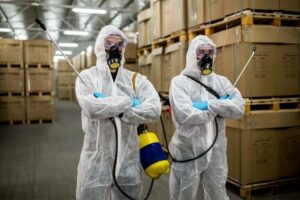
Common Interview Questions
- 1. General Experience and Background
Q1: Walk us through your academic and professional journey in pest control.- A: With a degree in Agricultural Engineering and certifications from Dubai Municipality (DM) and NPMA, I’ve spent [X years] specializing in urban pest management. My experience spans residential, commercial, and industrial projects, focusing on eco-friendly solutions compliant with UAE regulations.
- Q2: Why did you choose pest control engineering as a career?
- A: I’m driven by the intersection of public health and environmental stewardship. Pest control allows me to solve tangible problems while innovating sustainable practices, especially in a rapidly growing city like Dubai.
- Q3: How do you stay updated on industry advancements?
- A: I attend DM workshops, subscribe to Pest Control Technology journals, and participate in global forums like the International Pest Control Expo to stay ahead of trends like drone surveillance and biopesticides.
- Q4: Describe your approach to eradicating bed bugs in high-rise hotels.
- A: I combine heat treatments (45–55°C for 6–8 hours) with silica gel desiccants and mattress encasements. Post-treatment, I use canine inspections to ensure eradication, minimizing disruption to guests.
- Q5: How do you handle termite infestations in historical buildings?
- A: Non-invasive methods like borate wood treatments and termite baiting systems (e.g., Sentricon) protect structural integrity. Regular monitoring with moisture meters prevents recurrence.
- Q6: What’s your strategy for rodent control in Dubai’s souks?
- A: Focus on exclusion: sealing entry points with steel wool and installing tamper-resistant bait stations. I use tracking powder to identify rodent pathways and implement IPM to reduce food sources.
- Q7: Address a mosquito outbreak near a residential complex.
- A: Source reduction by eliminating stagnant water, followed by larviciding with Bacillus thuringiensis israelensis (Bti). Adulticiding with ultra-low-volume (ULV) fogging at dawn/dusk ensures minimal resistance.
- Q8: How do you ensure compliance with DM’s pesticide regulations?
- A: I maintain a DM-approved chemical inventory, use only registered products (e.g., alpha super SC for cockroaches), and document treatments in the Salama system. Regular audits ensure adherence to Circular No. 61 of 2021.
- Q9: Describe your PPE protocol during fumigation.
- A: Respirators with OV filters, nitrile gloves, and Tyvek suits are mandatory. Post-application, I follow WHO’s decontamination guidelines and dispose of PPE via DM-approved hazardous waste channels.
- Q10: What’s your process for handling a pesticide spill.
- A: Immediate containment using absorbent materials, evacuation, and notification of Dubai Civil Defense. Spill kits and SDS sheets are always on-site, with staff trained in HAZWOPER protocols.
- Q11: A client reports pesticide resistance in cockroaches. How do you respond?
- A: Rotate chemical classes (e.g., switch from pyrethroids to neonicotinoids) and integrate insect growth regulators (IGRs) like hydroprene. Supplement with gel baits and habitat modification.
- Q12: A school reports a wasp nest during peak hours. What’s your action plan?
- A: Rapid response with a non-toxic foam treatment after hours. Temporary exclusion nets are installed, followed by educating staff on preventing future nests.
- Q13: How do you explain treatment risks to a concerned parent?
- A: Use layman’s terms: “We’re using low-toxicity gels placed in inaccessible areas, similar to what’s used in hospitals. Your child’s safety is our priority.” Provide a safety data sheet (SDS) for transparency.
- Q14: A hotel manager rejects your plan due to cost. How do you negotiate?
- A: Present a cost-benefit analysis: “Investing in IPM reduces long-term expenses by 40% by preventing infestations. Let’s phase treatments to align with your budget.”
- Q15: How do you train new technicians on DM protocols?
- A: Blend classroom sessions on DM Circulars with field shadowing. Conduct quarterly drills on spill response and PPE usage, using DM’s e-learning portal for certification.
- Q16: Describe a time you resolved team conflict during a project.
- A: When two technicians disagreed on bait placement, I facilitated a data-driven review of rodent activity maps, aligning the team on an evidence-based strategy that reduced sightings by 60%.
- Q17: How have you integrated technology into pest control?
- A: Deployed IoT-enabled traps that send real-time alerts via PestConnect. Used drones for thermal imaging to detect termite colonies in Palm Jumeirah villas.
- Q18: What role does data analytics play in your work?
- A: I analyze trends using PestPac software to predict seasonal spikes (e.g., monsoon-related mosquito surges) and preemptively allocate resources.
- Q19: How do you balance efficacy with environmental impact?
- A: Prioritize WHO Class III (slightly hazardous) chemicals and bio-rational products like diatomaceous earth. For example, used pheromone traps for warehouse moths, reducing chemical use by 70%.
- Q20: Your client insists on excessive chemical use. How do you respond?
- A: Educate them on resistance risks and liability issues under DM’s environmental laws. Offer alternatives like heat treatments, emphasizing long-term success and corporate responsibility.
- Q21: Describe a project that required cross-cultural communication.
- A: For a luxury hotel with international guests, I coordinated with staff from 10+ nationalities, providing multilingual safety briefings and tailoring treatments to respect cultural sensitivities (e.g., halal-certified products).
- Q22: Tell me about a time you failed. How did you recover?
- A: A rodent recurrence occurred due to overlooked gaps in a restaurant’s ceiling. I conducted a complimentary re-inspection, sealed entry points, and implemented monthly monitoring, restoring the client’s trust.
- Q23: What is your expected salary?
- A: Based on my [X years] of DM-approved experience and the role’s scope, I anticipate a range of AED 7,000–10,000 monthly. I’m open to discussion based on benefits like professional development allowances.
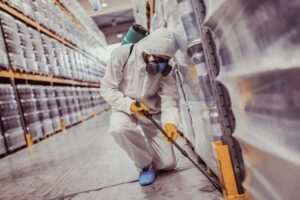
General Tips for Any Job Interview
Prepare Thoroughly: Research the company or institution you’re applying to, and familiarize yourself with their pest control projects in Dubai. Show a genuine interest in the work they do.
- Confidence and Professionalism: Remain calm and confident when answering questions, and be ready to discuss your past experiences in detail.
- Clear and Concise Answers: Aim to answer questions in a clear and straightforward manner, and be transparent when discussing challenges you’ve faced and how you overcame them.
Politeness and Professional Demeanor: Maintain a polite and respectful attitude throughout the interview. Your personal impact matters in convincing the interviewer.
- Ask Questions: Don’t hesitate to ask questions about the company or team, such as how they handle work challenges or opportunities for further training.
- Stay Current: Emphasize your willingness to keep learning and stay updated on the latest trends and technologies in pest control.
A career in pest control in Dubai offers significant professional growth opportunities in a dynamic and advanced environment. By preparing well for interviews and keeping up with the latest trends and technologies in the field, you can stand out as a top candidate and contribute to improving public health and safety in Dubai.
Important Note:
The answers provided in the article are just illustrative examples and may vary depending on the specific situations you’ve encountered and your previous professional experiences. These answers serve as a framework for structuring your responses, but you should tailor them based on your own experiences and the challenges you’ve faced in your career.

